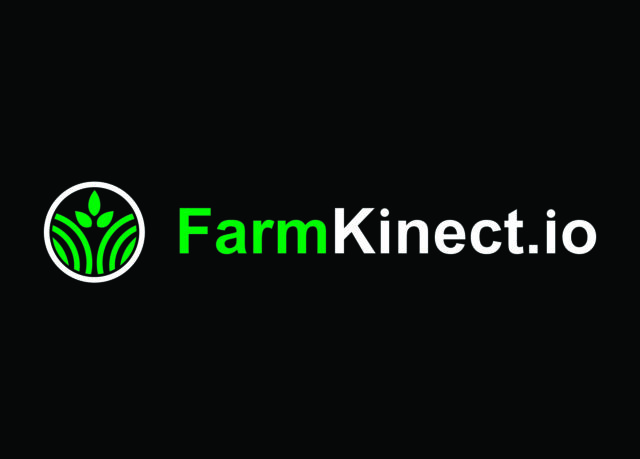Rapid, low-temperature heating and cooling of milk after pasteurization can extend the shelf life by several weeks. Dairy Management Inc. promoted Barb O’Brien to the newly created position of president. Texas health officials finalized a penalty agreement with Blue Bell Creameries. This and other U.S. dairy industry news can be found here.
‘Pasteurization add-on’ extends shelf life of milk
Rapid, low-temperature heating and cooling of milk after pasteurization significantly reduces the amount of harmful bacteria, extending shelf life by several weeks, according to a Purdue University study.
Bruce Applegate, Purdue associate professor in the department of food science, and collaborators from Purdue and the University of Tennessee published their findings in the journal SpringerPlus. They found increasing the temperature of milk by 10ºC for less than a second eliminates more than 99 percent of the bacteria left behind after pasteurization. The process added five to seven weeks of shelf life to fluid milk.
Pasteurization is considered a high-temperature, short-time method. The low-temperature, short-time (LTST) method in the Purdue study sprayed tiny droplets of pasteurized milk, which was inoculated with lactobacillus and pseudomonas bacteria, through a heated, pressurized chamber, rapidly raising and lowering their temperatures about 10ºC, but still below the 70ºC threshold needed for pasteurization.
Panelists did not detect differences in color, aroma, taste or aftertaste between the products. Applegate said the process could be tested without pasteurization to determine if it could stand alone as a treatment for eliminating harmful bacteria from milk.
The LTST chamber technology was developed by Millisecond Technologies, a New York-based company. The study was funded by USDA’s Agricultural Research Service, the Center for Food Safety Engineering at Purdue University and Millisecond Technologies.
Per capita consumption of butter, margarine traced
An article in the USDA’s Amber Waves magazine tracks the historical relationship between butter and margarine, citing the impact of wartime shortages, public policies and consumer tastes.
For the first half of the 20th century, supplies of butter available for U.S. consumers to eat (a proxy for consumption) averaged 16 pounds per person per year, compared with 2.8 pounds of margarine.
Shortages and rationing of butter during World War II led consumers and food processors to substitute margarine for butter.
After the war, many earlier public policies and restrictions on margarine (including restrictions on coloring margarine yellow) were relaxed, and some consumers had become more accustomed to the taste of margarine. Expanding soybean oil supplies contributed to margarine's lower price relative to butter.
Between 1942 and 1972, butter availability fell from 16.4 to 5 pounds per person per year, while annual per person availability of margarine increased from 2.9 to 11.1 pounds.
In the second half of the 1970s, margarine availability began trending downward, more steeply starting in 1994. By 2005, margarine availability had fallen below butter availability, despite butter's higher price.
Dairy Management Inc. promotes O’Brien to president
Dairy Management Inc. (DMI) promoted Barb O’Brien to the newly created position of president. In this role, she will oversee DMI strategic planning and operations, allowing current DMI chief executive officer Tom Gallagher to focus on long-term vision and strategy.
O’Brien, a 15-year veteran of DMI, will also remain as president of the Innovation Center for U.S. Dairy.
CWT assists with export sales
Cooperatives Working Together (CWT) export assistance bids accepted for the week ending July 29:
• Cheese – 174,165 pounds
• 3.42 million pounds of butter
• Whole milk powder – 88,185 pounds
Bids were accepted from Dairy Farmers of America, Maryland & Virginia Milk Producers Co-op and Michigan Milk Producers Association.
Year-to-date accepted bids:
• Cheese – 30.09 million pounds
• Butter – 10.37 million pounds
• Whole milk powder – 22.95 million pounds
Milk equivalent (milkfat basis) – 678.5 million pounds
Source: National Milk Producers Federation
Chobani to launch food incubator
Chobani LLC is taking applications for a Chobani Food Incubator, designed to help entrepreneurs and small food companies get started in business. The six-month, grant-based program will host its inaugural class from October 2016 to March 2017 in New York.
Program participants will receive monthly on-site training with Chobani team members. The program culminates at EXPO West Natural Food Conference in Anaheim, California, where incubator participants may showcase products to the natural food community.
Those selected for the program will receive $25,000 grants to help grow their business, cover travel, hotel and other expenses, and provide equity-free capital.
Applicants will be asked to electronically submit information about their products along with a short video and biographical information by Aug. 10. Finalists will be notified by Sept. 15. Applications and additional information is available at http://chobanifoodincubator.com.
Land O'Lakes establishes ‘sustainability’ business division
Land O'Lakes Inc. (LOL) organized a new business unit, SUSTAIN, focusing on aligning environmental sustainability efforts across the full LOL enterprise.
SUSTAIN will focus on helping to ensure sustainable crop production by delivering insights, products and services; enhancing sustainability within the dairy foods and feed businesses; and partnering with other entities, including government, to improve efficiency and collaboration on conservation and sustainability programs, according to Chris Policinski, LOL president and chief executive officer.
The SUSTAIN business will be led by Matt Carstens, who moved to LOL from United Suppliers Inc. United Suppliers' seed and crop protection businesses merged with LOL last October.
Domino’s Pizza growth continues
Domino’s Pizza Inc., which partners with Dairy Management Inc. on cheese promotion efforts, reported second-quarter 2016 same-store sales were up 9.7 percent compared to the same quarter a year earlier, continuing positive sales momentum to 21 quarters.
The international division posted quarterly same-store sales growth of 7.1 percent, marking the 90th consecutive quarter of growth.
Revenues were up 12 percent for the second quarter versus the prior year.
The company had global net store growth of 244 stores in the quarter, and 1,011 stores during the past year.
California issues Class 1 call provision
California’s Department of Food and Agriculture (CDFA) will implement the milk movement performance standard at the 100 percent level for the period of Sept. 1, 2016 to April 30, 2017.
Under California Stabilization and Marketing Plans for Market Milk provisions, “call handlers” may place a call to “designated supply handlers” for milk to be used for Class 1 (fluid milk) purposes.
CDFA can modify milk movement requirements on 15 days notice if it determines supplies of market milk for Class 1 use have substantially changed. CDFA may also terminate milk movement requirements on 10 days notice.
Link to CDFA’s call provision website.
Virginia dairy firm settles with EPA
The U.S. Environmental Protection Agency (EPA) announced Sunshine Pride Dairy Inc. will pay a $179,074 penalty to settle alleged federal environmental violations at its former cheese processing facility in Winchester, Virginia.
The dairy shut down cheese processing operations in December 2011, but left anhydrous ammonia stored in its refrigeration system with only a skeleton maintenance crew at the facility.
EPA alleged that in July 2012 the facility did not properly notify emergency response agencies about two instances when anhydrous ammonia was released into the air.
As a part of the settlement, the company did not admit or deny EPA’s allegations.
Texas finalizes penalty agreement with Blue Bell
Texas health officials finalized a penalty agreement with Blue Bell Creameries as a result of last year’s outbreak of Listeria monocytogenes linked to Blue Bell products made in Brenham, Texas.
The total penalty amount is $850,000, according to the Texas Department of State Health Services (DSHS). Of that, $175,000 must be paid within 30 days. The remaining balance will not have to be paid if Blue Bell follows the terms outlined in the agreement for 18 months.
Blue Bell must continue to notify DSHS of any presumptive positive test results for Listeria monocytogenes in ice cream, ingredients, food surfaces, machinery and other equipment in its Brenham plant. The company must maintain its “test and hold” procedures for all finished product, meaning ice cream must be found to be free of pathogens before it can be sold to the public.
FDA releases results of raw milk cheese sampling
The U.S. Food and Drug Administration (FDA) released test results from its sampling of several commodities, including raw milk cheese aged for 60 days, according to the International Dairy Foods Association (IDFA).
Test of 1,606 samples found raw milk cheese aged 60 days to have less than a 1 percent contamination rate for salmonella, Listeria monocytogenes, E. coli O157:H7 and Shiga toxin-producing E. coli., and the overall contamination rate for generic E. coli was 5.4 percent. Generic E. coli rarely causes illness, but its presence may be an indicator of insanitary processing conditions.
IDFA supported FDA’s decision earlier this year to pause enforcement of its current strict generic E. coli standard, saying the standard could result in the destruction of safe cheeses, and could be particularly costly to smaller artisan cheesemakers.
Other dairy organizations, companies and products
• The Western Iowa Dairy Alliance (WIDA) is conducting a dairy product donation program, providing chocolate milk to school sports teams to help athletes refuel after games. Milk can be requested on a first-come, first-serve basis by completing an application on the WIDA website.
• Chapel Hill Creamery (CHC), Chapel Hill, North Carolina, issued a voluntary recall of all cheese products because of a potential association with an outbreak of salmonella infections. Although there was not yet a definitive link between CHC cheeses and the illnesses, the Orange County (North Carolina) Health Department identified recent cases of salmonella infection in persons who consumed Chapel Hill Creamery products. A matching strain was identified in the creamery’s milk used during cheese production.
• New York’s Maple Hill Creamery unveiled new packaging and a social media campaign to call attention to its 100 percent grass-fed dairy products. Maple Hill Creamery produces yogurt, drinkable yogurt and raw milk cheese from milk supplied by about 70 grass-fed New York dairy farms.
• Weyauwega Cheese Co. will purchase a southeastern Wisconsin dairy plant shuttered by Dean Foods in 2015, according to the Sheboygan Press. Dean Foods closed the plant, located in Sheboygan, Wisconsin, after it shut down the Verifine brand line.
• Mexico’s Grupo LALA reported second-quarter sales up 8.9 percent and net income up 10.1 percent. Highlighting first-half 2016, Grupo LALA entered into an agreement to purchase the U.S. assets of Mexico-based Laguna Dairy, and signed a strategic agreement with the Costa Rican company Florida Bebidas, for the production, distribution and sale of LALA products in Costa Rica.
• The China Animal Husbandry Group (CAHG) has invested in a New Zealand dairy company to produce milk powders. CAHG will have a majority stake in Mataura Valley Milk Limited, located in New Zealand’s Southland province.
• The National Restaurant Association’s restaurant performance index (RPI) declined for the second consecutive month. One part, the current situation index, measures same-store sales, traffic, labor and capital expenditures. The expectations index measures restaurant operators’ six-month outlook for same-store sales, employees, capital expenditures and business conditions.
Both were down slightly in June compared to the month before. Restaurant operators also continue to have a dampened outlook for the overall economy. PD

-
Dave Natzke
- Editor
- Progressive Dairyman
- Email Dave Natzke





